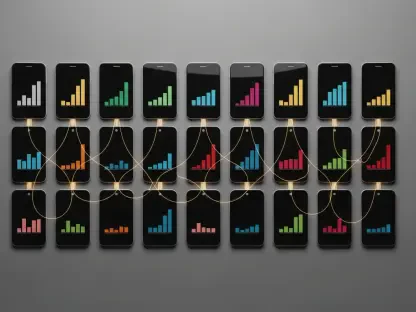I’m thrilled to sit down with Anastasia Braitsik, a global leader in SEO, content marketing, and data analytics. With her extensive expertise in digital marketing, Anastasia has a deep understanding of how emerging tools and strategies can transform the way businesses connect with their audiences. Today, we’re diving into Google’s innovative “Journey Aware Bidding” for Search campaigns, a model that promises to redefine how advertisers optimize their efforts by considering the full customer journey. In this conversation, we’ll explore what sets this bidding approach apart, who stands to gain the most, and how advertisers can prepare for its rollout, along with the broader implications for the digital advertising landscape.
Can you explain what Journey Aware Bidding is in simple terms, and why it’s such a game-changer for advertisers?
Absolutely. Journey Aware Bidding is a new approach Google is testing for Search campaigns that looks at the entire customer journey, not just the final action like a purchase or sign-up. Traditional bidding models often focus solely on that end conversion, but this one incorporates data from earlier stages—like when someone first visits a site or submits a lead form—to make smarter predictions and improve campaign results. It’s a big deal because it aligns advertising more closely with how people actually make decisions, which often involves multiple steps and touchpoints over time. This holistic view can help advertisers get better efficiency and outcomes, especially for complex funnels.
How does this model differ from the bidding strategies Google currently offers?
Current bidding strategies, like Target CPA or Maximize Conversions, are heavily focused on a single, biddable goal at the end of the funnel. They don’t account for the nuances of what happens before that final click. Journey Aware Bidding, on the other hand, learns from non-biddable stages as well—think of things like page views or early interactions that aren’t directly tied to a bid but still matter. By feeding this broader data into its algorithms, Google can adjust bids with a deeper understanding of user behavior, which could lead to more accurate predictions and less wasted ad spend.
What kinds of data or touchpoints does Journey Aware Bidding consider across the customer journey?
It takes into account a wide range of interactions that happen before the final conversion. This could include initial searches, website visits, form submissions, or even engagement with content like videos or downloads. Essentially, it maps out the full path a user might take—from awareness to consideration to decision. Google uses these touchpoints to build a more complete picture of intent, so the system isn’t just guessing based on the last click but understanding the context of how someone got there.
Who do you think stands to benefit the most from this new approach to bidding?
I believe advertisers with longer or more complex customer journeys will see the biggest wins. Think of industries like lead generation, real estate, or high-ticket products and services where people don’t convert right away—they research, compare, and interact multiple times before committing. Businesses that already have robust tracking in place to capture these stages will be in a strong position to leverage this model. It’s less about the size of the company and more about how well they’ve mapped out and categorized their funnel.
What are some key steps advertisers should take to prepare for adopting Journey Aware Bidding?
First, they need to map out their entire customer journey in detail—from the first touch to the final conversion. That means identifying every meaningful interaction and ensuring they’re tracked properly in their systems. Next, they should pick one primary KPI to optimize for, like a purchase or a qualified lead, while marking other stages as conversions but not including them in bidding optimization. Clean data is critical, so double-checking tracking setups and categorizing each step clearly is a must. It’s all about giving Google’s system the best possible information to work with.
What challenges might advertisers face when implementing this bidding model?
One hurdle could be the complexity of setting it up, especially for businesses with limited resources or less sophisticated tracking systems. Smaller advertisers might struggle to capture all the necessary data points across the journey. Also, for companies with shorter, simpler funnels—like impulse purchases—there might not be as much benefit, since there aren’t many stages to analyze. Adapting to this model may require investing in better tools or expertise, which could be a barrier for some.
Why do you think Google is shifting toward a model that emphasizes the full customer journey?
Google is likely responding to the reality of how fragmented and non-linear user behavior has become. People don’t just search once and buy—they bounce around, engage across devices, and take their time. Current bidding strategies often miss these nuances, leading to inefficient ad spend or missed opportunities. By focusing on the full journey, Google is trying to close those gaps, improve prediction accuracy, and ultimately deliver better results for advertisers. It also aligns with broader trends in digital marketing toward personalization and understanding intent at every step.
Can you share some insights about the pilot program for Journey Aware Bidding and what we might expect from it?
Right now, Google is rolling out a closed pilot this year with a select group of advertisers. While specific details on participants aren’t widely public, it’s likely focused on those with strong tracking capabilities and diverse funnels to test the model’s effectiveness across different scenarios. I expect the feedback to center on how well the system improves performance metrics like cost-per-acquisition or return on ad spend, as well as any practical challenges in implementation. This initial phase will be crucial for refining the model before a wider rollout.
What is your forecast for how Journey Aware Bidding will shape the future of digital advertising?
I think it could set a new standard for how we approach optimization in paid search and beyond. If it proves successful, we might see a shift where advertisers prioritize comprehensive journey tracking over single-point conversions, pushing the industry toward more integrated, data-driven strategies. It could also encourage other platforms to adopt similar models, focusing on the ‘how’ behind conversions rather than just the ‘what.’ Long-term, I foresee this fostering a deeper collaboration between advertisers and platforms to capture user behavior in a more meaningful way, ultimately benefiting both businesses and consumers.









